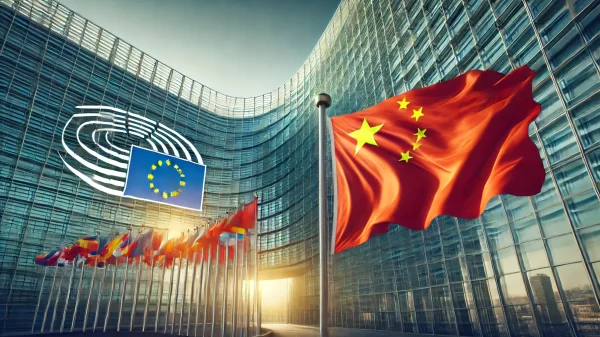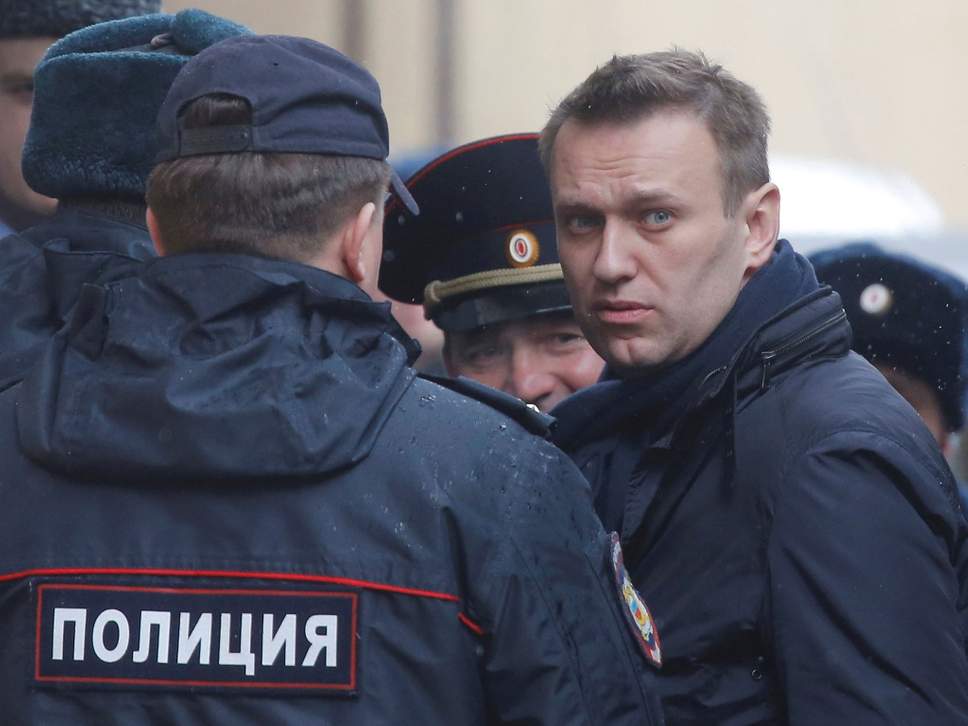
Russian opposition leader Alexei Navalny has heavily criticised the lack of action against Russian oligarchs by the US and UK, telling the Financial Times that the two countries have no real interest in tackling “dirty money”. writes Louis Auge.
Navalny launched a stinging attack aimed at the US sanctions regime against the Kremlin, which aims to curb Moscow’s influence in response to its election interference and its invasion and occupation of Ukraine. “American sanctions policy is a chaotic, incomprehensible mess,” he said in a sweeping criticism of attempts to rein in Russia.
As President Vladimir Putin’s most prominent domestic critic and political opponent, Navalny’s understanding of the Kremlin’s points of vulnerability should be valued by Western leaders.
He believes sanctions should target one specific pressure point: political oligarchs with close links to Putin.
Indeed, there is clear political will – both among UK parliamentarians and US senators and congressmen – to target these individuals; Britain’s Foreign Affairs Committee published a damning report, ‘Moscow’s Gold’, about the influence of Russian money in the UK, while congressional critics in the US are pushing to introduce a new bill into the Senate promising “sanctions from hell”.
However, the Trump White House and Number 10 are slow to act. “The FBI and the UK government know all too well who the specific people are who need to be sanctioned to make it painful,” for the Kremlin, Navalny said. But yet they are failing to exert real pressure on these businessmen, many of whom are believed to be holding assets on Putin’s behalf.
Progress is hindered further by the armies of powerful lobbyists, lawyers and financiers whose livelihoods depend on “dirty money” from Moscow. “In Britain nothing is happening because greedy lawyers have been living off [Russian money] for decades,” said Navalny. “MPs can’t do anything because Britain is run in such a way that it loves dirty money.”
The case that drew Navalny’s ire most was that of Oleg Deripaska. Shortly after raising over $1bn through a London IPO of his company En+ Group in November 2017, Deripaska was sanctioned by the US Treasury in April 2018. After months of negotiations, this January the Treasury approved a plan to reduce Deripaska’s holdings from 70% to 45% and to surrender executive control of the group. Navalny derided the decision as “a huge failure”.
Certain Washington DC-based lawyers and lobbyists – including the Manafort-linked group Mercury Public Affairs – in the pay of Deripaska’s acolytes heralded this as a victory for sanctions, lawmakers disagreed. A vast majority of members of the House of Representatives (362-53) voted in favour of a resolution of disapproval of the Treasury Department decision, but a similar measure in the Republican-led Senate fell three votes short of a two-thirds majority required to overturn the decision.
Although Deripaska himself remains sanctioned, the effects of this are now limited; he is still En+ Group’s largest shareholder and he faces no travel restrictions. Navalny agrees, saying the sanctions had failed to curb the lifestyles of oligarchs’ families in the West. “They’re all still going abroad perfectly freely,” said Navalny.
The Russian opposition figure was clear that Putin considered certain oligarchs to be part of his soft power, none more so than Deripaska, who the US Treasury itself noted “does not separate himself from the Russian state”.
To this extent, the failure of the US to maintain pressure on the aluminium mogul is damaging to the credibility of the approach of both London and Washington DC on sanctions.
At a time when Russia is ramping up its activity against Europe and the US, the West should increase its pressure on Russian tools of influence, including Deripaska, not reducing it.

























